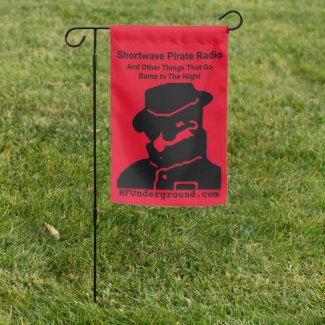There are numerous references stating that in 1946 the FCC began reserving call letters for college carrier-current stations. This practice continued at least through the 1950s. I'm not sure when or if they ever stopped.
Here are excerpts from early sources:
A History and Description of College Wired Radio Systems in the United States
By Myron Morgan Curry · 1948:
...One more function, with regard to campus broadcasting stations, was undertaken by the FCC within the past two years. Call letter designations, which, beginning in 1942, were adopted as general practice by campus stations, were registered by the Commission early in 1947..
..IBS felt that it would be advisable to avoid duplication of call letters of already existing standard broadcasting services. It therefore requested and received permission to list with the FCC all call letters of its member stations. Most campus stations were thereby caused to change their call letters (only seven were found to be unduplicated in already established broadcast services), but whenever possible, letter designations were left or granted in accordance with the campus group's desires. The difficulty of obtaining call letters nowadays is increasing, as the number of standard broadcast services increases.. .
...It is my opinion that it would have been wiser for all campus stations to continue referring to each individual station as a "network", "guild", or "system", using colors where desired, or some designation peculiar to the college in question, as "the Brown Network". At least, it might have been advisable to adopt call letter series beginning with letters other than "K" and "W", because these are already in use by standard broadcasting stations. Such designation would also avoid a charge of imitation or pretentiousness on the part of campus broadcasters. At all events, listing of call letters with the Commission enables it to maintain a check on campus wired-radio stations in existence..
..The Commission more-over appears to favor some form of centralized organization for the campus stations in order to keep the governmental regulating body informed of developments in the low-power field...[/i]
Another....
A HISTORY AND DESCRIPTION OF COLLEGIATE CARRIER-CURRENT BROADCASTING IN OHIO.
STEPHEN CONGER HATHAWAY (JR)
University of MICHIGAN, 1958
....As this is written, over one hundred forty institutions of higher learning in forty states have accepted carrier-current broadcasting as an activity worthy of existence on the campus... ... and carrier-current radio stations are now recognized by the Federal Communications Commission by the registration of call letters and special rules and regulations.4*... ...Encouragement for campus carrier- current stations also was evidenced by the commission in the reservation of the call letters of IBS stations.5*....
*4. Federal Communications Commission Rule Making, Federal Register, Part 15--Incidental and Restricted Radiation Devices, Vol . XX , No. 252 (Washington: Government Printing Office , December, 1955) .
*5. In 1946 in an open letter to all IBS radio stations, George Abraham, Chairman of IBS, explained:
"Following the recent agreement of the FCC to re-serve call letters for IBS stations, the present calls of all stations were checked with the FCC master files . Only seven were found unused, but the Commission does not think that duplication of calls used in services other than broadcasting will cause confusion .
In cases where the calls used by IBS stations duplicate those of ships, point-to-point communications, police, or similar services, a reservation has been entered in the files of the FCC so that if the call becomes available for assignment, it will be assigned to the IBS station. Those calls which were not duplicated have been registered for IBS.
"New IBS stations are being asked to submit several alternative choices of calls, and where possible unduplicated calls will be assigned to them. "The few stations which still retain call letters not beginning with W or K will wish to change to standard United States calls now that their status is officially recognized by the FCC.
These stations are urged to submit lists of calls they would like in order of preference.
" Of the present operating stations, only one will definitely have to change its call. WMAC, the call used by MacMurray College, has been reserved by a standard broadcast station, and will have to be relinquished by IBS. The present WMAC will have several months in which to build up a promotion campaign for its new call. One or two other calls are duplicated so close to the IBS station that a change appears advisable. Chief of these is WOUB, used by IBS at Ohio University at Athens, Ohio, and also by the Ohio State Police. The new uniform registration procedure will protect IBS against the necessity of more changes in the future.
The FCC has continued the registration and reservation of call letters for collegiate carrier-current radio stations. Some newly organized stations have submitted as many as ten call letter groups before an acceptable group has been assigned." .....
......As the reader can see, there was no uniformity of radio station call letters at that time . Some systems bore the names of their collogos , some substituted the college colors, while others used call lotters symbolizing the name of their college or mascot...[/i]
Here's one more example, but there are several more.
Hobart Mass Communication Studies: 1949-50 - Page 19 A COLLEGE RADIO STATION COMES INTO BEING by Peter Marks 1949:
... Mr. Wemett had been one of the founders of WXPN at the University of Pennsylvania before he entered Hobart. The letter he wrote was addressed to the Intercollegiate Broadcasting System (I.B.S.) as being east of the Mississippi with an identification starting with W.
A list of 18 identifications was submitted to the F.C.C. through I.B.S. We were fortunate in getting our first choice , E.0.S. The letters wore chosen to signify "Echoes of the Seneca"...



